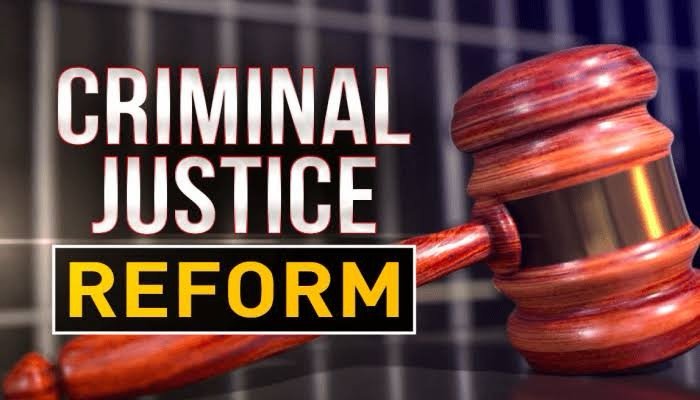The Committee for Reforms in Criminal Laws was constituted by MHA in March 2020 with an aim of examining and suggesting necessary reforms in the Indian Penal Code, 1860; Code of Criminal Procedure, 1973, and the Indian Evidence Act, 1872. The Committee had an initial timeframe of six months’ term. This was extended by 14 months and the Committee submitted its report to Hon’ble Union Home Minister on February 27, 2022.
- This Committee was headed by Prof. Srikrishna Deva Rao, Vice Chancellor, National Law University, Delhi. The other members of the Committee were: Prof. (Dr.) G.S. Bajpai, Vice Chancellor, RGNUL Patiala; Shri Mahesh Jethmalani, Senior Advocate and Member of Parliament, Rajya Sabha; Prof. (Dr.) Balraj Chauhan, Former Vice Chancellor, DNLU, Jabalpur; Shri G.P. Thareja, Former District & Sessions Judge, Delhi; Shri Praveen Sinha, IPS, Special Director, CBI and Dr. Padmini Singh, Additional Legal Advisor, CBI.
- The Committee had a broad mandate to reform criminal laws, with focus on the Indian Penal Code, 1860, the Code of Criminal Procedure, 1973 and the Indian Evidence Act, 1872. At the outset, the Committee identified the following guiding considerations that have informed its approach to the reform process:
- (a) Primacy of the Constitution
- (b) Primacy of Human Rights
- (c) Revisiting the Relationship
- Between the State and the Individual
- (d) Victim Justice
- (e) Safeguarding the rights of the Accused
- (f ) Fair and Time-bound Investigation
- (g) Fair and Time-bound Trial
- (h) Simplified, unambiguous and consistent Procedure
- (i) Transparency and Accountability
- (j) Infusing Techno-centricity
- The Committee had a challenging task in its hands and had to grapple with the COVID pandemic which forced many consultations on the virtual mode. During these consultations, suggestions were received from a variety of stakeholders including judges, advocates, academic institutions, non-government organisations, law enforcement agencies including Police, Para-military forces, research institutions and citizens.
- Suggestions were sought from all Governors, Chief Ministers, Lt. Governors/Administrators of States/ Union Territories, Chief Justice of India, Chief Justices of all High Courts, Bar Councils and Law Universities/ Institutions. Hon’ble Members of Parliament (both Lok Sabha and Rajya Sabha) were also requested to give their suggestions in this regard.
- The suggestions received from Supreme Court of India, 16 High Courts, 42 Members of Parliament, 18 States, 6 Union Territories, 22 Law Universities and 5 judicial academies were also forwarded to the Committee. Suggestions were also received from more than 1000 Police officers from different States/UTs, Central Police Organisations, Central Bureau of Investigation (CBI), Intelligence Bureau (IB) and Bureau of Police Research & Development (BPR&D).
- The Committee after extensive consultations with all stakeholders and meticulous research, submitted its recommendations to the Ministry of Home Affairs.
- The Ministry of Home Affairs considered the recommendations of the Committee along-with suggestions received from various stakeholders. After extensive and detailed examination of these recommendations/suggestions, three Bills were prepared to repeal the Indian Penal Code 1860, the Code of Criminal Procedure 1973 and the Indian Evidence Act 1872, and replace them with Bhartiya Nyaya Sanhita 2023, Bhartiya Nagarik Suraksha Sanhita 2023 and Bhartiya Sakshya Adhiniyam 2023, respectively.
- The Bhartiya Nyaya Sanhita 2023, Bhartiya Nagarik Suraksha Sanhita 2023 and Bhartiya Sakshya Adhiniyam 2023 are inter-dependent and work in tandem to fulfil the aspirations of robust and responsive Criminal Justice System.
- These new Criminal Acts addresses the current challenges faced in the Criminal Justice System and also introduces provisions to incorporate Technology and Forensic Science, simplify procedures, reduce pendency of cases in Courts, strengthen Prosecution, increase Fines upon Conviction, decrease crowding in Correctional Homes, besides expediting and simplifying the process of Trial.



